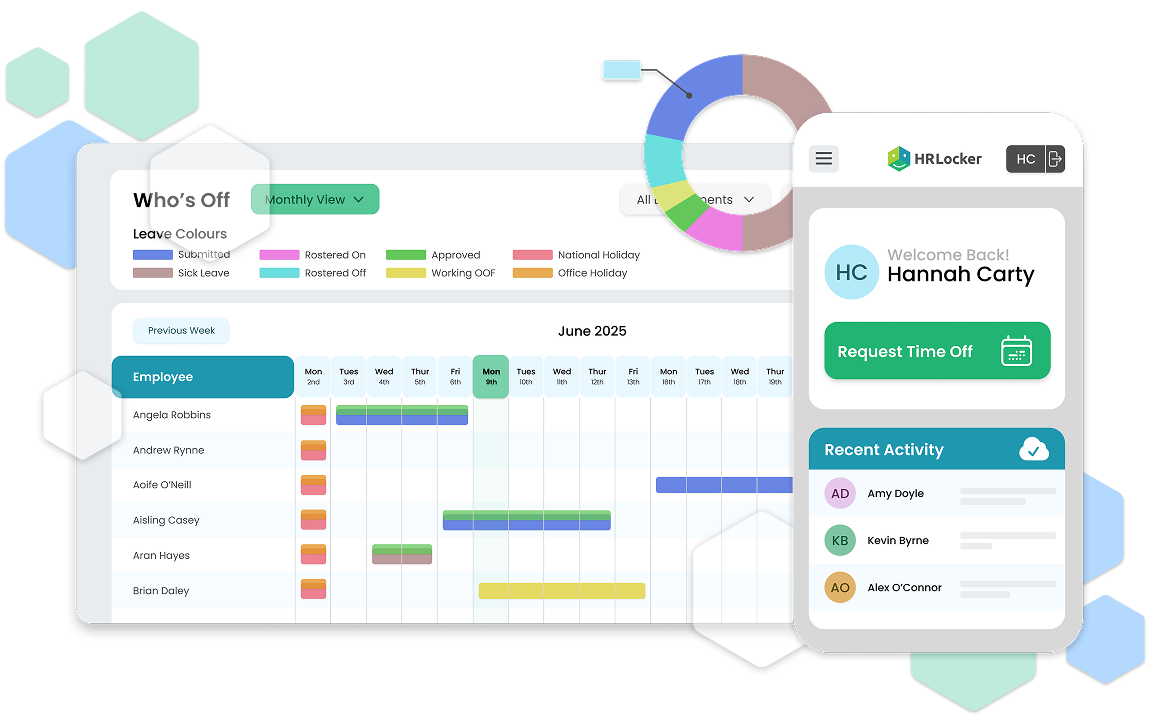Every workplace should be a safe and supportive environment for all employees. Domestic violence can have a significant impact on a person’s wellbeing, affecting their ability to work and maintain financial independence. As part of an employer’s commitment to employee welfare and their duty of care for employee safety, implementing a Domestic Violence Leave Policy is essential to ensure those affected receive the support they need.
This policy will serve as the cornerstone for supporting employers and employees in understanding the available options.
Why a Domestic Violence Leave Policy Matters
Domestic violence and abuse can take many forms, including physical, emotional, sexual, and financial abuse, as well as coercive control. It can affect anyone, regardless of gender or background, and often extends beyond the home, impacting work performance, attendance, and mental health.
A Domestic Violence Leave Policy aims to:
- Provide paid leave for employees experiencing domestic violence.
- Foster a workplace culture that supports openness and understanding.
- Offer information on internal and external resources for those in need.
- Ensure managers are equipped to support employees sensitively and confidentially.
- Maintain a secure work environment for all staff members.
Key Entitlements Under the Policy
In accordance with the Work-Life Balance and Miscellaneous Provisions Act 2023, employees are legally entitled to up to five days of Domestic Violence Leave, paid by the employer, within any 12 month period. There are no service requirements to qualify for this leave, ensuring immediate access to support when needed.
Additionally, the leave is available not just for those directly experiencing domestic violence, but also for employees supporting what the law calls a ‘relevant person,’ such as a spouse, partner, child, or dependent.
Recognising the Signs of Domestic Abuse in the Workplace
Domestic violence can manifest in various ways, and employers must remain vigilant for signs that an employee may be in distress. Common indicators include:
- Unexplained absences or frequent sick leave.
- Changes in work patterns or reluctance to engage in meetings.
- Decreased performance, missed deadlines, or an increase in errors.
- Physical signs such as bruising, altered clothing to conceal injuries, or sudden changes in appearance.
- Anxiety, fear, or withdrawal from workplace interactions.
Creating a Safe Space for Disclosure
Discussing domestic violence is incredibly difficult, and employees need to feel safe when seeking support. To ensure this, your policy should provide for a designated contact person trained to handle disclosures sensitively and confidentially. Employees can approach this individual for assistance, whether that's in-person or remotely.
The manager or designated person must take every precaution to ensure that the conversation with the employee happens sensitively and confidentially. They should express concern for the employee’s wellbeing and mention observed indicators, signalling that they are willing to discuss the matter and that the employee has their support.
If a disclosure is made, the designated person or manager should work with the employee to assess their needs and discuss safety measures. They should be mindful that they are not experts in handling matters of domestic violence, and so should be aware of their limitations. Still, they can play an important role in providing information to employees on available support options.
When an employee discloses domestic violence, they may share details about the abuse, including work-related incidents. Even if not directly work-related, this information could be vital if legal protection is sought later. Keeping records of work-related abuse, such as emails, phone records, and interactions with support services, can be valuable.
Confidentiality is a priority, and all records should be discreetly and securely maintained in line with General Data Protection Regulations (GDPR).
Workplace Responsibilities and Support
All employees are expected to contribute to a safe working environment. If an employee is found to be using company resources to facilitate domestic violence, such as sharing sensitive information or harassing a colleague, you may invoke disciplinary procedures.
For those experiencing domestic abuse, we recommend considering additional support such as:
- Flexible working arrangements, including remote work or adjusted office hours.
- Access to a confidential Employee Assistance Programme (EAP) (if applicable).
- Safe spaces within the workplace to access specialist services.
- Information on specialist services and external resources.
Specialist Services and External Support
To assist employees seeking external assistance, we also recommend including the following list of specialist support services available in Ireland:
- Women’s Aid – 24hr National Freephone Helpline: 1800 341 900 (www.womensaid.ie)
- Men’s Development Network – Male Advice Line: 1800 816 588 (www.mensnetwork.ie)
- Dublin Rape Crisis Centre – National Sexual Violence Helpline: 1800 77 8888 (www.drcc.ie)
- LGBT Ireland – National Helpline: 1800 929 539 (www.lgbt.ie)
- An Garda Síochána – Emergency Support: 112 or 999
Final Thoughts
A supportive workplace can make a significant difference in the lives of employees affected by domestic violence. By implementing a clear and compassionate Domestic Violence Leave Policy, you can ensure that employees feel safe, supported, and empowered to seek the help they need.
If you are an employer looking to establish a similar policy, MSS The HR People can provide guidance and support tailored to your organisation’s needs. As trusted partners of HR Locker, we are happy to provide their clients with a Domestic Violence Leave Policy free of charge. Email info@mssthehrpeople.ie and we will get back to you.
Together, we can create safer workplaces and a stronger community.
This article was written by Tara Daly, Managing Director at MSS Ireland, as a guest contributor for the HRLocker blog.

 5 min read
5 min read
 April 1, 2025
April 1, 2025 







